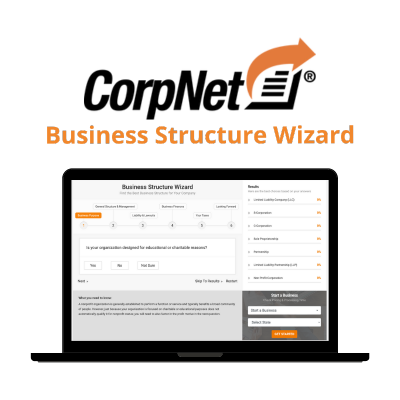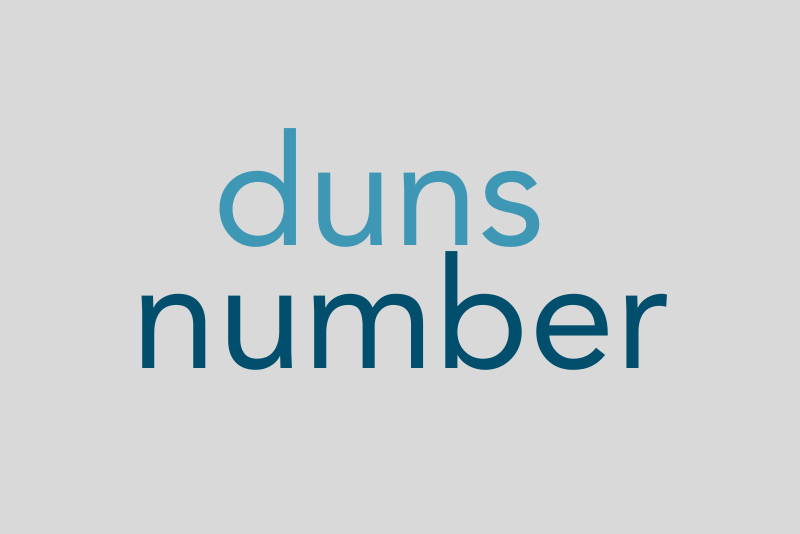A Dun & Bradstreet (D&B) D-U-N-S® Number is a unique nine-digit number assigned to a company to help potential lenders, partners, and suppliers assess the business’s stability, creditworthiness, and other qualities. Having a DUNS Number can help a company build a business credit history and demonstrate its credibility. A company’s DUNS number identifies it as unique from any other company in the Dun & Bradstreet Data Universal Numbering System database.
DUNS Numbers are assigned through D&B’s proprietary verification process for confirming a company’s information. D&B may give a company a DUNS Number without the business applying for one if a supplier or financial institution requests information about the organization. If you’re wondering whether your business has a DUNS Number, you can use the Dun & Bradstreet website’s lookup tool or call the organization.
Do You Need a DUNS Number for Your Business?
DUNS Numbers are not legally required. However, you might be asked to provide your company’s DUNS Number if you:
- Apply for a loan from a bank, credit union, or other financial institution.
- Bid on contracts.
- Apply for a business line of credit with a vendor or supplier.
- Apply to become a vendor or supplier for a potential client.
In general, having a DUNS Number can benefit a company by affirming it’s legitimate and giving potential partners, vendors, and lenders access to the information they need before entering into agreements with the business.
Until April 2022, business entities that wanted to apply for federal grants, cooperative agreements, or contracts had to have a DUNS Number. While the federal government now uses the Unique Entity ID in SAM.gov, many state and local agencies still require a DUNS Number before issuing a grant or awarding a contract to a company.
How Is a DUNS Number Used?
Your DUNS Number is connected to various pieces of information about your company, including:
- Company’s legal name
- Type of business entity (e.g., LLC, C Corporation, S Corporation, Sole Proprietorship, Partnership, Nonprofit Corporation, etc.)
- Company headquarters’ address
- Phone number
- Information about branch locations
- Information about subsidiaries
- D&B credit scores and ratings; lender, vendor, and supplier payment history; judgments, suits, or liens
- Financial statements
These are just some of the details available, some of which can be accessed for free through the online D&B Business Directory, while a fee must be paid to obtain other details (such as a credit report).
The most prevalent reason other organizations might request a company to provide its DUNS Number or request D&B to email the company’s DUNS Number to them is for due diligence associated with loan and credit applications and potential partnership agreements. Additionally, DUNS Numbers may be used to look up a company’s viability prior to mergers and acquisitions.
How Can You Apply for a DUNS Number?
As I mentioned, your company may already have a DUNS Number, so first verify whether or not one is already assigned to your business by searching in the D&B D-U-N-S Number Lookup.
If no DUNS Number exists for your company, you can obtain a DUNS Number for free by following several simple steps on the D&B website:
- Go to https://www.dnb.com/duns/get-a-duns.html.
- Choose from several options that best describe your company — e.g., U.S.-based business, Canada-based business, Google Developer, etc.
- Provide information about your business (the info requested depends on the option you selected in Step 1) — e.g., legal business name, legal structure, business address, phone number, business owner, the year the business started, primary industry, and number of employees.
- Submit your request.
- Respond to the Dun & Bradstreet representative who contacts you to validate information about your company.
- Receive your DUNS Number from D&B after they have authenticated your information. — D&B will email it to you.
Note: A company with multiple locations must apply for a separate DUNS Number for each one.
It’s free to obtain a DUNS Number from D&B. However, businesses that want to expedite the process can pay a fee (which is $229 at the time of this writing).
According to D&B, the standard processing time is up to 30 business days to receive a DUNS Number. With expedited processing, a company can receive its DUNS Number within eight business days.
DUNS Number Vs. EIN
Because both DUNS Numbers and Employer Identification Numbers (EINs) consist of nine digits and are free to obtain, people sometimes confuse them.
DUNS Numbers and EINs are not the same! I’ve shared some points below about their similarities and differences:
- Issuer – An EIN is issued by the IRS after receiving Form SS-4 from the requesting party. A DUNS Number is issued by Dun & Bradstreet after the organization verifies a business’s existence via multiple sources.
- Purpose – EINs are primarily used for tax purposes, establishing a business bank account, applying for licenses, and getting a company credit card. They are mandatory for registered business entities (like LLCs and Corporations) and any business that hires employees (including Sole Proprietorships and General Partnerships). DUNS Numbers are part of a company’s identity in the Dun & Bradstreet database, but they are not legally required. Other organizations may look up a company’s DUNS Number to access information that helps them decide whether or not to loan money or enter into some other type of agreement with the business.
- Assignee – Unlike an EIN, a DUNS Number may not be assigned to an individual.
- Quantity – A business entity may obtain multiple EINs for a single location, but a company may only have one DUNS Number per location.
- EINs are for companies operating in the U.S., while DUNS Numbers are issued globally.
- Format – An EIN’s format is two digits, a dash, and seven digits (e.g., 12-3456789). A DUNS Number’s format is two digits-three digits-four digits (e.g., 12-345-6789).
- Privacy – EINs are considered private, sensitive information, whereas DUNS numbers are publicly shared.
Another Tip for Building Business Credibility
In addition to getting a DUNS Number, consider forming an LLC or incorporating your company — if you haven’t already done so. Registering an LLC or Corporation sets up a business as its own entity, which means it can establish its own credit history and score independently of its owners. Moreover, because an LLC or Corporation is a separate legal entity, its owners’ personal assets receive protection from the company’s debts. That’s a major plus over operating as a Sole Proprietorship or General Partnership, which are not separate legal entities and therefore put business owners’ personal bank accounts, retirement savings, and property at risk if their company runs into legal or financial problems. Talk with a trusted attorney and tax professional to discuss which business entity type is best for you.

Choosing a business structure can be a tough decision for the new business owner. CorpNet wants to make the process easier.
This free, online tool helps small business owners navigate the process of picking the right business structure for their new business.





